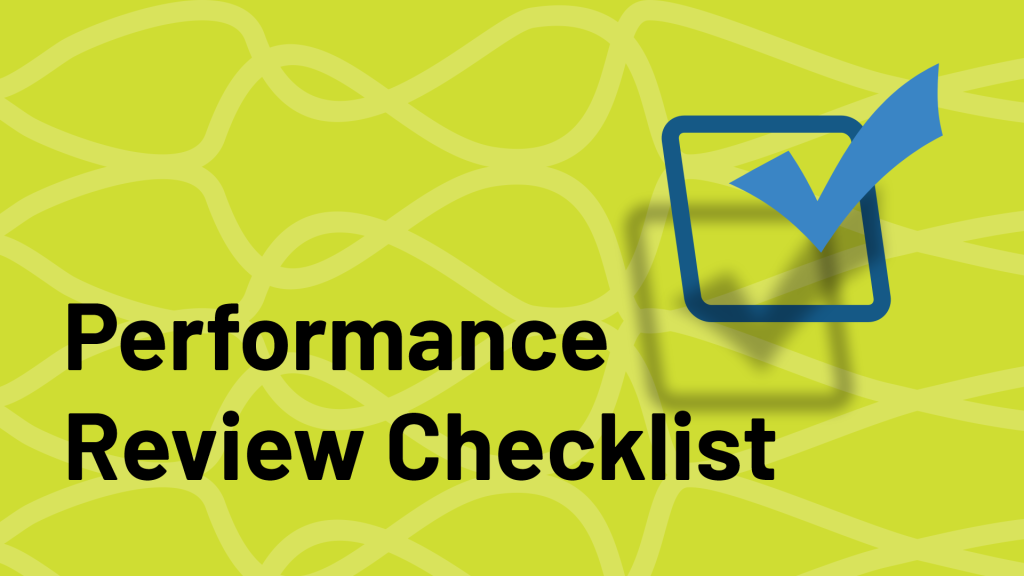02 July 2024
The Tightrope Walk: Navigating Ethics in Management Consulting

For decades, management consultants have served as trusted advisors, wielding significant influence over the fate of organizations. They diagnose problems, craft solutions, and guide companies toward achieving their ambitious visions. History itself is dotted with examples of their impact – from the meticulous project management that manifested in the pyramids of Egypt to the revolutionary workflow optimization principles pioneered by Frederic Taylor in the steel industry. Management consulting boasts a legacy of creating positive change, a testament to the power of expertise and fresh perspectives.
However, the path of progress is not always paved with good intentions. Just as a stumble on the high wire can lead to a catastrophic fall, ethical lapses can tarnish the reputation of the entire profession. The infamous case of McKinsey & Company’s involvement in the opioid crisis serves as a chilling reminder of the devastating consequences that can unfold when profit overshadows ethical considerations. This single misstep not only shattered trust but also highlighted the vulnerability of a system lacking ethical frameworks and strong accountability measures.
This begs the question: How do we navigate this ethics? How can we ensure that management consulting remains a force for good, driving progress while upholding the highest ethical standards? For years, we have been in the business of ensuring ethics in management consulting. And we’ll be discussing these concerns in this article. We’ll explore the complexities of ethical considerations in management consulting, exploring the challenges, the potential pitfalls, and the path toward a more ethical future. We’ll also examine the challenges of evaluating consultant effectiveness, the devastating consequences of unethical practices, and the urgent need for a robust ethical framework. Additionally, we’ll discuss the evolving ethical dilemmas brought on by technology in the consulting world and the critical role both consultants and clients play in building a culture of integrity.
The Challenge Effectiveness in Management Consulting
As a management consultant, one of your most perplexing hurdles is gauging a consultant’s true effectiveness. Imagine a scenario where two consultants vie for the same project. Consultant A has an impressive track record of high-profile clients and “transformative” results. Consultant B, on the other hand, presents a more modest portfolio, yet emphasizes a deep understanding of the client’s specific industry and a commitment to a collaborative approach.
The challenge for the client lies in discerning true value. Did Consultant A’s impressive results stem from genuine expertise or simply from a polished presentation and a knack for securing big names? Conversely, might Consultant B’s lack of high-profile clients mask a genuine ability to deliver tailored solutions that perfectly suit the client’s needs? As Janell Dudley, a project manager and advocate for ethical consulting, highlights, some firms prioritize filling slots with available personnel rather than meticulously matching consultant expertise to client challenges. This creates a situation where your success might be measured by your ability to secure projects, not by the tangible value you ultimately deliver.
The Cost of Unethical Practices: Broken Trust and Lost Opportunities
The cost of unethical practices can be devastating, eroding trust and hindering progress. Imagine a client, eager for a quick turnaround, partnering with a consultant who promises a one-size-fits-all solution at a seemingly unbeatable price. However, as the project unfolds, the consultant’s inexperience and lack of industry knowledge become painfully clear. Deliverables fall short, deadlines are missed, and the client’s frustration is at its peak. The promised quick fix transforms into a costly detour, jeopardizing trust and potentially causing the client to miss crucial business opportunities. As Zhanna Mingaleva emphasizes in her paper on ethical principles, dishonesty, and unfulfilled promises have a ripple effect, leading not only to financial losses but also to a breakdown in client relationships.
The Urgent Need for a Robust Ethical Framework
In this high-stakes game, the need for a robust ethical framework is abundantly clear. The expanding influence of consulting firms, not just on corporations but also on governments and public institutions, necessitates a system of checks and balances. Currently, the landscape lacks a centralized governing body and standardized metrics for ethical conduct, creating a situation where ethical lapses can go unchecked.
However, you shouldn’t be worried. We have proposed a series of thought-provoking questions that can pave the way for a more ethical future. These questions challenge you and your industry to consider the following:
- Building a Reliable Code of Ethics: What elements could contribute to a reliable code of ethics for consultants, one that goes beyond mere words and translates into tangible actions?
- Client Engagement for Ethical Practices: How can clients play a more active role in promoting ethical practices within the industry? By asking pointed questions and demanding transparency, your clients can become powerful advocates for responsible consulting.
- Independent Oversight and Regulation: Could an independent regulatory body be established to oversee ethical conduct, ensuring that consultants are held accountable for their actions?
- Whistleblowing Mechanisms for Safe Reporting: Should whistleblowing mechanisms be encouraged within consulting firms, providing a safe space for employees to report unethical behavior without fear of retribution?
- Penalties for Ethical Breaches: What penalties should be imposed for ethical breaches, creating a strong deterrent against misconduct?
Ethical Dilemmas of Management Consulting in the Age of Technology
The field of consulting is constantly evolving, and with this evolution comes new ethical dilemmas. The rise of big data and automation injects a layer of complexity into the equation. While these technologies hold immense potential for increasing efficiency and generating valuable insights, they also raise ethical concerns. For instance, you might propose employing an algorithm to streamline a client’s hiring process, but if the algorithm inadvertently perpetuates bias against certain demographics, the consequences could be far-reaching. In this scenario, your responsibility extends beyond technical expertise and requires a deep understanding of the potential ethical implications of their recommendations.
Building Trust Through Ethical Practices
Building trust is the bedrock of any successful client-consultant relationship. By building trust with your clients, you can avoid doubts and misconceptions concerning your field. So, how can consultants navigate this intricate dance and emerge as ethical champions? Here are some core principles to consider:
- Client Focus: Always prioritize your client’s needs over personal gain or profit targets. Ensure solutions genuinely address the client’s specific challenges and contribute to their long-term success.
- Transparency: Be upfront about limitations in your expertise and potential risks associated with your recommendations. Also, a clear and honest conversation fosters trust and allows for informed decision-making.
- Honesty: Deliver realistic assessments and avoid sugarcoating challenges. Clients deserve a clear picture of the situation, even if it’s not what they want to hear.
- Confidentiality: Safeguard client information and avoid using it for personal gain. Trust is built on the foundation of discretion and ethical data management.
- Conflict of Interest: Disclose any potential conflicts of interest and avoid situations where personal interests could compromise objectivity. For example, if a consultant has a financial stake in a company they are recommending to a client, this needs to be disclosed upfront.
Your Client’s Role in Fostering Ethical Consulting
The responsibility for ethical conduct doesn’t solely rest on the shoulders of consultants. Your clients also play a crucial role in shaping the ethical landscape of the industry. Here’s how they can help you champion ethical practices:
- Asking the Right Questions: Let your clients know they shouldn’t be afraid to go deep during the selection process. They should be able to ask pointed questions about a consultant’s experience, methodology, and approach to ethical considerations.
- Demanding Transparency: Your client is allowed to request clear communication throughout the project. This fosters trust and allows them to identify any potential ethical red flags early on.
- Setting Clear Expectations: Together, you and your client can outline their ethical expectations for the project in the engagement agreement. This provides a clear framework for ethical conduct and holds consultants accountable.
- Speaking Up: Encourage your client to voice out any concerns they have noticed during your consulting process. And be sure to listen and make corrections where due. By encouraging communication, you can avoid stories that touch.
In Conclusion…
The future of management consulting hinges on a shared commitment to ethical principles. By prioritizing client needs, fostering transparency, and holding themselves accountable to a robust ethical framework, consultants can build trust and ensure their expertise continues to drive positive change. Clients, by actively engaging with the ethical aspects of consulting and holding consultants accountable, can become powerful advocates for ethical practices. Ultimately, a collaborative effort between you and your client is what will pave the way for a more ethical future in management consulting, ensuring this profession remains a force for good in the ever-evolving world of business.
Whether you’re a management consultant with years of experience under your belt, or you’re just about to dip your toe into the field, you can’t deny that there are certain characteristics you must possess to be able to dominate your industry. See whether you possess any of these attributes in this article. Or reach out to us if you’re interested in practically building any of these skills.
Join 2000+ Subscribers
Subscribe to Our newsletter to stay informed

UK: 5, Seacourt road, London. SE2 9UW
NIGERIA: 11a, Mojidi Street, off Toyin Street, Ikeja, Lagos.
GHANA: F393/4 Otwse street, Osu, Accra, Ghana
(+234) 901 278 1155
info@protenintl.com
Our Services
Latest Tweets
Lorem ipsum dolor sit amet, consectetur adipiscing elit. Donec nec metus libero. Aliquam non mauris.
Copyright © 2024 Proten. All Rights Reserved
Terms Of Service
Privacy
Cookies










